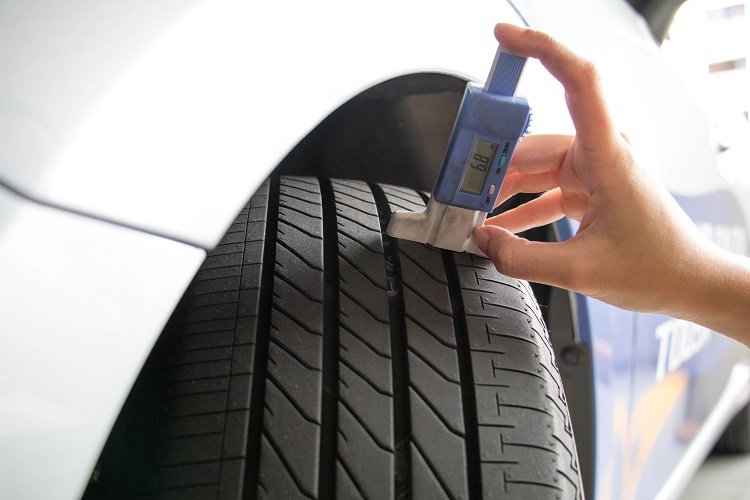The Reality Behind the Rubber
Most Singaporeans don’t realise that car tyres are the unsung heroes of our island nation’s remarkable automotive story. With only 32% of residents owning a vehicle due to strict government regulations and high costs, those who do drive face unique challenges that make tyre selection critical.
The story begins with a startling statistic: Singapore recorded around 524,000 private cars on the road as of 2023, yet the tropical climate and constant stop-and-go traffic create conditions that can destroy inferior tyres in months rather than years. I’ve watched countless drivers learn this lesson the hard way, standing beside their vehicles during sudden downpours, discovering that their budget tyres simply can’t handle Singapore’s notorious wet-weather challenges.
The Singapore Tyre Market: More Than Meets the Eye
Behind the scenes, Singapore’s tyre industry tells a fascinating tale of adaptation and innovation. The market was valued at USD 0.09 billion in 2022 and is anticipated to experience robust growth with a CAGR of 4.72% through 2028.
The transformation becomes clear when you examine the purchasing patterns:
- Aftermarket tyres dominate the landscape – These tyres hold the largest share in the market, offering a wide variety across different brands and budgets
- Consumer awareness drives frequent replacements – Growing awareness about timely inspection for passenger and vehicle safety leads to periodic tyre replacements
- Premium segment shows strong growth – Benefits of premium tyres, such as improved performance and safety, lead to increased demand for higher-priced options
Why Singapore’s Climate Destroys Ordinary Tyres
Here’s what tyre manufacturers don’t always tell you: Singapore’s tropical climate creates a perfect storm for automotive rubber. The constant heat—often reaching 35°C with humidity levels that would make a sauna jealous—causes rubber compounds to break down faster than in temperate climates. Add sudden, torrential downpours that can turn roads into rivers within minutes, and you’ve got conditions that separate quality tyres from the pretenders.
The Electric Vehicle Revolution Changes Everything
Singapore’s automotive landscape is undergoing a quiet revolution. As part of its Green Plan 2030, the Singapore government is promoting EV adoption, with the Land Transport Authority planning to electrify half of the bus fleet by 2030.
This shift creates entirely new demands:
- Specialised EV tyres – EVs require tyres that handle higher torque and increased weight due to battery packs.
- Low rolling resistance priority – Designed to maximise energy efficiency and extend driving range.
- Smart tyre technology – Sensors track temperature, wear, and tyre pressure in real-time
The Economics of Tyre Ownership in Singapore
With the most common type of car among Singaporeans ranging from 1,001 cc to 1,600 cc, most drivers fall into a sweet spot where quality tyres represent a significant but manageable investment. In 2023, around 30,000 cars were less than a year old, indicating a relatively young fleet.
Smart drivers are learning that investing in quality tyres upfront saves money through improved fuel efficiency, reduced replacement frequency, better safety margins, and lower risk of costly roadside emergencies.
The Technology Revolution in Tyre Design
Innovation has accelerated dramatically. Run-flat tyres allow vehicles to continue driving after a puncture, while self-sealing tyres automatically seal small punctures, gaining popularity for their convenience and safety benefits.
Triangle Tyre introduced two new high-performance tyres to Singapore in March 2023: the EffeX Sport TH202, providing a 13% improvement in wet handling and a 28% improvement in wet braking.
Market Leaders and What They’re Doing Right
Major players in the Singapore tyre market include Michelin Asia-Pacific Pte Ltd, Goodyear Singapore Pte Ltd, Bridgestone Asia Pacific Pte Ltd, Continental Automotive Singapore Pte Ltd, and others, each bringing different strengths to the table.
The competition has intensified as these manufacturers recognise Singapore’s unique position as both a testing ground for tropical conditions and a gateway to Southeast Asian markets. The passenger car tyres segment is expected to hold the largest share of the Singapore tyre market during the forecast period, driven by the reality that advantages such as ease of finding a wide range of tyres for all vehicle types at various price points are likely to accelerate growth of the replacement sector.
The Road Ahead: What This Means for Drivers
Singapore’s tyre market reflects broader trends in automotive technology, environmental consciousness, and urban mobility. The surging focus on environmentally friendly and sustainable solutions has resulted in the creation of eco-friendly tyres made of recyclable materials that meet Singapore’s environmental goals.
For drivers, this evolution means more choices but also more complexity. The days of simply choosing the cheapest option are over. Today’s smart drivers understand that tyre selection impacts everything from fuel costs to safety margins to environmental footprint.
Whether you’re navigating Marina Bay’s gleaming towers or heading to Changi Airport through tropical downpours, your tyres are the only thing connecting your vehicle to the road. In Singapore’s demanding environment, that connection matters more than most drivers realise.
The future belongs to those who understand that in a city-state where automotive ownership is both precious and practical, choosing the right tyres isn’t just about transportation—it’s about making the most of every journey on Singapore’s roads, backed by the expertise and innovation that defines the thriving tyres Singapore market today.

